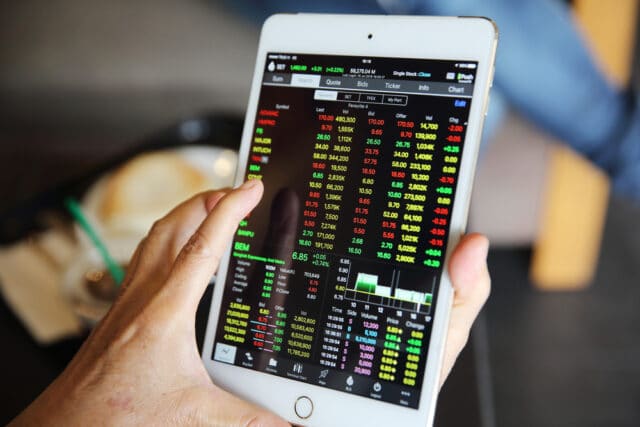Have you heard about anonymous brokers in forex but are not sure how they operate? This article will explore how such firms work and the pros and cons you should consider.
The concept of anonymity is prevalent within the blockchain world. Very few may know that we have anonymous brokers in forex as well who provide discretion thanks to cryptocurrencies.
Although anonymous forex brokers are less popular than non-anonymous brokerages, they provide an interesting service for privacy-conscious clients. These individuals might feel their private data is compromised when providing their details through traditional brokers.
Let’s explore how anonymous brokers operate in currency trading and whether we should trust them or not.
What is an anonymous forex broker?
An anonymous forex broker operates much like a traditional brokerage, providing access to the forex markets and allowing clients to connect with a supported trading platform—the primary distinction between the two lies in how each onboards its clients.
The sign-up process involves the financial services framework known as KYC or Know Your Customer with a normal firm. Here, you typically need to provide two things. The first is an original government-issued identity document or card, primarily an official ID, passport, or driver’s license, depending on the broker’s requirements.
The second is proof of residence (typically not older than three or six months), usually entailing a bank or card statement, telephone bill, utility bill, or any formal documentation providing one’s actual residency.
Moreover, most brokers would require you to share your card information by taking pictures of the card at random times when making a deposit or withdrawal. This due diligence structure has technically existed since the 90s, but its implementation got stricter in the 2000s and 2010s.
The increased stringency was primarily driven by a surge in money laundering still occurring within financial activities. Hence, the KYC has an anti-money laundering policy.
The main aim is for businesses (in this case, brokers) to verify clients when they sign up for a live account to confirm their identity. Through this authentication, the broker can see if a client’s name is linked to any past criminal activities.
How do you trade forex anonymously?
The ‘secret’ of trading currencies anonymously is using cryptocurrencies as a payment method for depositing and withdrawing. In this case, anonymous brokers would only need your first, last name, and email address during the sign-up stage for a live account.
All other operations one expects of a typical broker remain the same. When depositing or making a withdrawal, instead of using a debit/credit card, e-wallet option, or bank wire, you would choose a cryptocurrency, often Bitcoin.
Through this mechanism, the trader doesn’t have to report to any bank or payment provider how much they’ve deposited or withdrawn from trading due to the decentralized, unregulated nature of cryptocurrencies.
Advantages of anonymous forex brokers
Let’s consider some notable advantages of using anonymous brokers to trade forex.
- Total privacy
At the heart of it all is privacy, which is the main attraction for any traders considering using these services. If you have concerns over identity theft or the practice of institutions handling your data with third parties, you eradicate these with anonymous brokers.
Also, depending on your country’s taxation laws, there is no obligation to report any of your trading profits to the relevant authorities.
- Much faster live trading account sign-up
With a KYC-focused broker, verifying a live account takes up to 24 hours (in some cases, longer). This period is a lot longer compared to an anonymous firm having its clients ready to go within a few minutes.
- Fewer restrictions
We should note there are millions of people who, for whatever reason, cannot provide the documentation required in KYC. This becomes a challenge for these individuals, meaning they aren’t allowed to trade the markets.
With an anonymous broker, the barrier to entry is lower, allowing traders from virtually any country to become a client.
Disadvantages of anonymous forex brokers
While anonymity is a noble concern for anyone, it does present some serious challenges, the main one of which is regulation.
- Lack of regulation
Virtually all anonymous brokers are not regulated by any known reputable regulator in the forex industry like the FCA (Financial Conduct Authority) or ASIC (Australian Securities and Investments Commission).
Even when such brokerages could be regulated, it tends to be in an offshore destination not recognized for the best transparency, resulting in two critical things.
Firstly, an unregulated or partially regulated broker is likely to have an incentive to misbehave through malpractice by, among other things, manipulating your trades or delaying any profit withdrawals.
Secondly, an unregulated trading provider won’t have any protection mechanisms for your funds like segregated accounts, which we associate with the most recognized brands. So, if the broker were to go bust, clients would be unlikely to receive their deposits.
- Inconsistent fee structure of some cryptocurrencies.
Another drawback with using cryptocurrencies is this channel often doesn’t have fixed costs, especially for Bitcoin. For instance, it is much cheaper to deposit and withdraw with a card, as these can be completely free or only charge a few percent.
In comparison, it can be quite expensive with Bitcoin depending on how busy the blockchain network is. Of course, it isn’t to label the anonymous brokers as totally bad since providers like EagleFX are quite revered. The point is to be aware of the inherent risks that aren’t present otherwise.
It’s generally recommended for traders not to allocate all their capital towards these institutions.
Final word
Most people have no problems sharing their personal information with brokers, which is perhaps why the number of anonymous brokers is presently limited.
The issue of privacy has been deep-rooted for quite some time, particularly in internet-based dealings like social media platforms and, of course, finance-related institutions.
For some, anonymity is a big deal, and, technically, it does provide some advantages. For starters, the speed of signing up to an account is faster, and you drastically minimize the possibilities of identity theft.
Yet, the elephant in the room with any organization relying on cryptocurrencies will always be regulation that is practically non-existent. Ultimately, your trust in anonymous brokers lies between whether you value privacy over the regulation or regulation over privacy.




